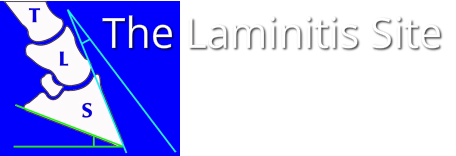Did you know that it is illegal in the UK for a company to sell any substance that claims to treat, prevent or control disease (including laminitis and PPID) in horses, or that claims to restore, correct or modify physiological functions by "exerting a pharmacological, immunological or metabolic action", unless that product has a marketing authorisation. This includes nutraceuticals (food supplements) and herbal products.
A product doesn't actually have to treat, prevent or control disease - it must not give an averagely well-informed person the impression that it treats or prevents disease. This includes claims made on product labels, leaflets, adverts, websites, chat rooms/forums or by spoken recommendation, claims made by a third party where a connection exists with the marketing company, or references in marketing material to studies suggesting that a product or ingredient has a medicinal effect.
"If a product refers, expressed or implied, to the treatment or prevention of a disease or adverse condition, or to improving the condition of the animal treated, it is making medicinal claims. For example, medicinal claims include a reference to the treatment or prevention of scours, mastitis, colic, footrot, laminitis, eczema, or to stress related to nervous conditions such as hyperactivity, or any other condition which is not the normal state of a healthy animal."
See Legal controls on veterinary medicines for details.
Marketing authorisation numbers will be shown on all packaging, and can be checked on the NOAH database
- see the MA for Prascend on the NOAH database -
or on the VMD product information database.
Unauthorised products can be reported by email or post using this form:
Report an animal product being marketed as a medicine
False or misleading advertising claims about a product, but not relating to medicinal claims, should be reported to your local Trading Standards Officers under the Trade Descriptions Act 1968, or to the Advertising Standards Authority.
A product doesn't actually have to treat, prevent or control disease - it must not give an averagely well-informed person the impression that it treats or prevents disease. This includes claims made on product labels, leaflets, adverts, websites, chat rooms/forums or by spoken recommendation, claims made by a third party where a connection exists with the marketing company, or references in marketing material to studies suggesting that a product or ingredient has a medicinal effect.
"If a product refers, expressed or implied, to the treatment or prevention of a disease or adverse condition, or to improving the condition of the animal treated, it is making medicinal claims. For example, medicinal claims include a reference to the treatment or prevention of scours, mastitis, colic, footrot, laminitis, eczema, or to stress related to nervous conditions such as hyperactivity, or any other condition which is not the normal state of a healthy animal."
See Legal controls on veterinary medicines for details.
Marketing authorisation numbers will be shown on all packaging, and can be checked on the NOAH database
- see the MA for Prascend on the NOAH database -
or on the VMD product information database.
Unauthorised products can be reported by email or post using this form:
Report an animal product being marketed as a medicine
False or misleading advertising claims about a product, but not relating to medicinal claims, should be reported to your local Trading Standards Officers under the Trade Descriptions Act 1968, or to the Advertising Standards Authority.

 RSS Feed
RSS Feed